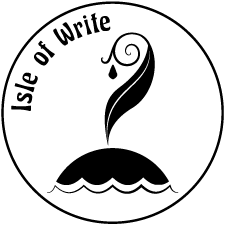The Charnel House - Tanka Poem


As some people may have noticed I have been writing a lot of haiku recently, but today I decided to UP my syllabic game by writing a Tanka.
This tanka was inspired by a post I read from @riverflows called:
The Light of the Soul Throws Sparks: Cumulative Acts Can Change the World
Her post focuses on the massive amount of love flowing from some stalwart Aussies who're trying to save wildlife caught in the bush fires that have been decimating Australia. Check out her post!
The title image for this post is intensely emotive for me as I honestly believe that we as humans have no more right to this earth than any other form of life that shares our planet. Our wholesale destruction of the environment is nothing short of moronic, and without drastic change, both economically, socially and in how we govern ourselves, it ain't gonna stop.
If you are in any doubt of how bad this un-natural disaster is check out the footage below.
So, what is tanka poetry?
Tanka poetry is a Japanese 31-syllable poem, traditionally written as a single, unbroken line. In English translations, the tanka tends to take on a five-line form and midway through a tanka poem, there's a change in perception, similar to a sonnet. There's usually a "turn" between lines two and three. As with a sonnet, this expresses a transition from an image to a reflection upon the image.
The word "tanka" translates to "short song." Just like haiku poetry, tanka poems have specific syllable requirements - but unlike haiku, the focus isn't on crafting a single perfect moment. Tanka can use many literary devices, including personification, metaphors, and similes to express complex imagery.
Tanka follow the form 5/7/5/7/7 syllables/line with a 5 line structure when written in English. However, as I have mentioned previously in my post Haiku Vs Senryu - The Aesthetics of Form, the syllabic convention is only set in stone when written in the native Japanese. While it is great to stick to the convention when writing in English, you should never get stuck on counting syllables to the detriment of the poem's overall aesthetic feel.
For example; when Saitō Mokichi's tanka is translated to English it does not fit the conventions. The poem counts as 5/5/5/6/7 syllables - three syllables are lost in translation. But the poem is still a perfect example of the form from a traditional Japanese master because the aesthetic isn't lost in translation!
Coming to a wall,
a lacewing Mayfly
is clinging to it --
the sheer transparency
Of the wings, their mournfulness.
Tanka by Saitō Mokichi
My tanka honors the model set up by the Mizu No Oto - Haiku Contest, where a picture is used to prompt a haiku. In this case I have taken my prompt from the image used as a thumbnail in this post.
If you have enjoyed this poetic post, please check out my other work on my homepage @raj808.
Thanks for reading.





Shared on twitter with all the relevant tags for #posh (Proof of Share)
https://twitter.com/rowanj808/status/1214970384233172993?s=20
The alliteration her is beautiful written could literarily feel the unison. The mood is definitely saddening really. You summed everything in just a short but a captivating write.
Cheers m8. I spent quite a bit of time on this poem and it did go through 6 or 7 drafts if memory serves.
It is such a sad state of affairs to me that we continue to destroy our planet and let increasingly extreme politicians into positions of power who are more interested in the acquisition of wealth and power by polarizing opinions, than actually attempting to sort out the major issues that will cause the extinction of both us and our animal cousins.
I guess that deep sadness at the blindness of humanity as a whole bleeds from the verse in this poem.
I'm glad you enjoyed it m8 :)
God Bless
Right back at ya :)
It is unfortunate what happens in Australia. Here the news has passed many sad images.
Yes, it really is sad :(
Beautifully written and so interesting to learn about tanka poems. I feel very inspired to write myself 🙂
Posted using Partiko iOS
Excellent, that's what I aim for with these types of articles. I studied creative writing at university so there is a load of technical knowledge around the different forms of poetry, and proper writing practices, just rattling around in my brain lol.
If I can inspire even one person to try writing a poem in a form that is new to them, it makes me very happy. Passing on the knowledge and all that ;)
P.s. I completely forgot to follow you the other day when I saw your intro post @mamrita... I've just rectified that and am following you now. Look forward to seeing any poems you might write popping up on my feed 🙂